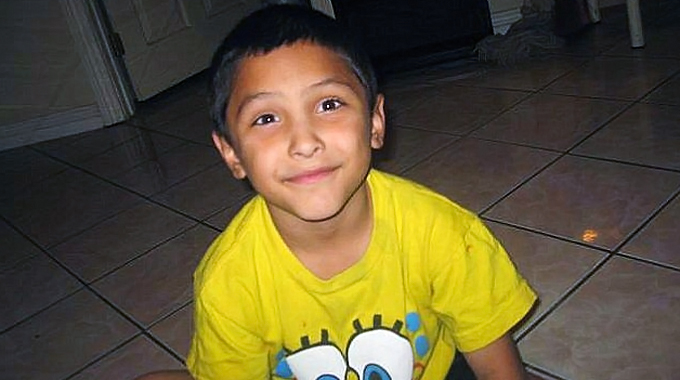A Los Angeles County judge on Thursday dismissed the case against four social workers who were charged in connection with the torture death of 8-year-old Gabriel Fernandez — after being directed to do so by a California appeals court.

The Los Angeles County District Attorney’s Office had filed the charges of child abuse and falsifying records against social workers Stefanie Rodrigez, 35, and Patricia Clement, 59, as well as their respective supervisors, Kevin Bom, 41, and Gregory Merritt, 64, back in April 2016, almost three years after the Palmdale boy’s death.
Superior Court Judge George Lomeli, who also presided over the murder trial of Gabriel’s mother and her boyfriend, dismissed the charges against the four social workers after previously denying a motion to drop them in September 2018.
The new action came after the state 2nd District Court of Appeal tossed the charges against the social workers, ruling the four “never had the requisite duty to control the abusers and did not have care or custody of Gabriel,” according to the Los Angeles Times.
Lomeli cited that ruling when he dismissed the charges, noting the court had been directed to vacate the 2018 order.
An attorney for the social workers spoke briefly outside the courtroom following the ruling, telling reporters that his clients were grateful that the charges were tossed.
The county Department of Children and Family Services also issued a short statement following the case’s dismissal.
“We respect the court’s decision,” the statement read. “Over the years, the Los Angeles County Department of Children and Family Services has taken significant steps to mitigate risk and improve our capacity countywide in order to best serve vulnerable children and families and as a department we remain committed to ensuring that reform continues.”
Prosecutors had argued that Rodriguez, Clement, Bom and Merritt had a “legal duty” to protect Gabriel once DCFS opened an abuse case.
“By minimizing the significance of the physical, mental and emotional injuries that Gabriel suffered, these social workers allowed a vulnerable boy to remain at home and continue to be abused,” District Attorney Jackie Lacey said in a statement when charges were filed.
Gabriel died in May 2013 after suffering months of horrific abuse and torture at the hands of his mother, Pearl Fernandez, and her boyfriend, Isauro Aguirre, according to prosecutors.
He was beaten, whipped, burned with cigarettes, shot with a B.B. gun, forced to eat cat litter and feces, and locked in box for days, according to prosecutors and witness testimony at the trial. By the time he was hospitalized shortly before his death, Gabriel had numerous injuries, including a cracked skull and broken ribs. B.B. pellets were found in his lung and groin.
Aguirre was sentenced to death after being convicted by a jury of first-degree murder with a special circumstance of torture. Fernandez received a sentence of life in prison without the possibility of parole after pleading guilty to first-degree murder and admitting to a special circumstance allegation of intentional murder by torture.
The murder of Gabriel Fernandez received national attention and cast a critical eye on the county’s Department of Children and Family Services, which handled his case.
The agency has also come under fire following the deaths of two other Antelope Valley boys it was monitoring, 10-year-old Anthony Avalos in 2018 and 4-year-old Noah Cuatro in 2019.
The families of both boys have filed wrongful death lawsuits that name DCFS.
Attorney Brian Claypool, who is representing Anthony and Noah’s families in those lawsuits, told KTLA after the Gabriel Fernandez ruling that a civil case could be the only way to make social workers know that they are being watched and will be held responsible.
“The California appellate court decided the social workers have immunity from criminal prosecution. That is a catastrophic decision,” he said. “It’s one of the worst decisions I’ve ever seen in my life.”












